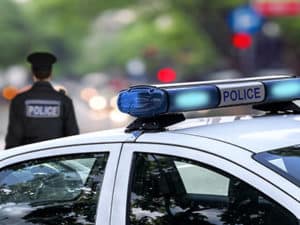 The country is, again, reeling. There is discord. In some areas, outrage. For good reason.
The country is, again, reeling. There is discord. In some areas, outrage. For good reason.Questionable police shootings of civilians in Baton Rouge, Minneapolis and elsewhere follow a string of “questionable” use-of-force incidents in communities around the country in recent years. Such incidents continue. In an unspeakable reverse series of events, ambush-style shootings targeting police have occurred. Officers have died in Dallas, Baton Rouge and Orlando among other cities. The result has both civilian and police populations on edge in seemingly unprecedented fashion putting doubt in police encounters.
Although progressive police departments offer special training programs to promote greater understanding, cultural sensitivity and community-based policing, would one know whether local officers have adopted or accept such training? On the other hand, do civilian populations have an interest in learning about police procedures and tactics? If you are Christian or Jewish, in perhaps a far-fetched parallel, and are exposed you to a class in Hinduism or Atheism, would you accept or adopt such leanings?
What level of understanding do communities pursue regarding law enforcement? About how police set out to protect neighborhoods? Police tactics, policies and procedures. Should communities take more interest in police concerns, or areas that plague departments and perhaps create a chasm law enforcement and community?
It is the responsibility of both sides – civilian and police alike – to respect and understand each other. To take interest. This remains a complicated issue given the depth of understanding is lacking on each side. While no one-size-fits-all solution exists, the following Acronym was created to empower communities to teach their families the steps by which one can safely handle police encounters in a motor vehicle.
Assume nothing! (i.e., Do NOT assume you know why you were stopped or pulled over by police. The police may have another, perhaps more serious reason for stop and your movements could cost you.)
Wait for police instruction when stopped or approached. Keep hands on or by the steering Wheel, or where they can be seen. Do not reach for anything such as license or other documents before instructed.)
Avoid Admissions, rudeness, or resisting – even if falsely accused. You will have your day in court.
(Note: Admissions, come from answers. Remain silent, as is your right – but be polite in invoking.)
Repeat the officer’s instruction before taking action. Ensure you heard instruction correctly and that you’re both on the same page. (e.g., You want my registration and insurance card?)
Explain to the officer what you will do before acting AND wait for approval! (e.g., I will reach into my right jacket pocket for my wallet, okay?” Wait for officer’s response. Relates to producing documents.)
The acronym A. W. A. R. E. can empower families and communities to take control of police encounters and help both sides get through it safely. Particularly at time where tensions between some communities and police may be elevated. Keep in mind your obligation when stopped in a car by police is to produce your driver’s license, registration and insurance card. Those obligations (document production) do not exist outside of a vehicle traffic stop.
If you or a loved one are in need of legal advice or are dealing with a difficult traffic court case, contact our Hudson Valley NY DUI/DWI attorney at Inniss Law Firm today to schedule a consultation and discuss your case.
** – The above is offered for information only and is not legal advice. No attorney-client relationship is established between the author and reader of this article.

With over 20 years of State Police Experience,
We Fight to keep Your License, Career & Reputation
Contact Us - (845) 533-0265
If You Have Been Arrested, Time Is Precious So Don't Delay Or
Wait! Call Us Today At (845) 533-0265